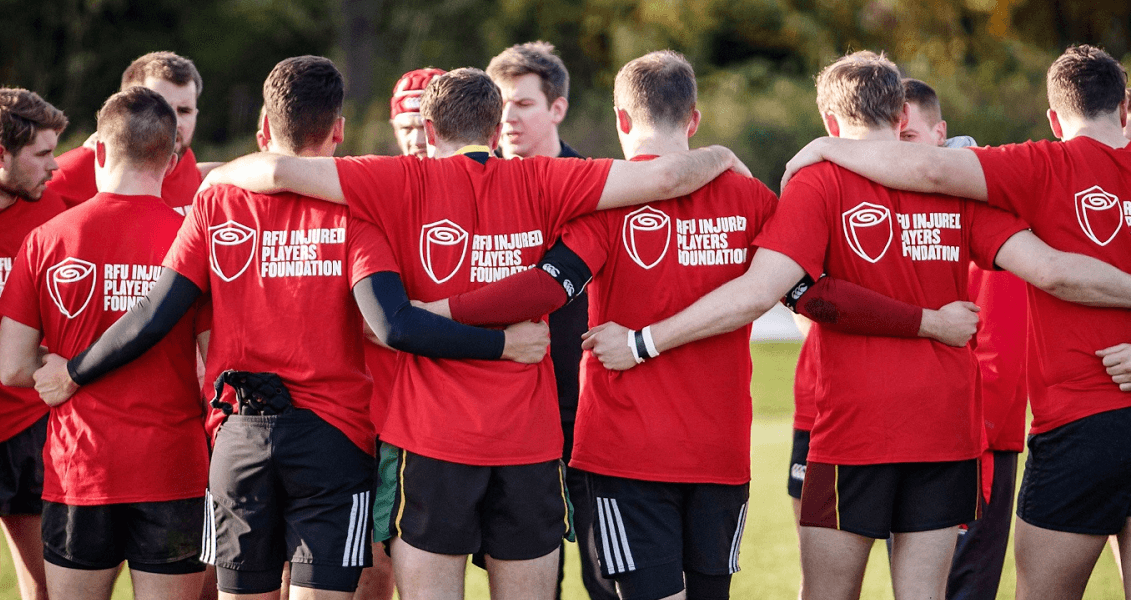The cost-of living-crisis is having an effect on many people but some, like those with life-impacting disabilities, are particularly susceptible. That’s why the RFU Injured Players Foundation (IPF) has supported their beneficiaries with over £90,000 of cost of living grants this autumn, most of which is helping with the increases in energy bills.
According to new research by the Financial Fairness Trust and Bristol University, 48% of households with people with disabilities have struggled to keep their home warm and comfortable this year, in comparison to 30% of non-disabled households. Of those 48%, 29% are in ‘serious financial difficulty’ as a result of the cost-of-living crisis in comparison to 13% of other households.
Many Additional Costs
The disability charity, Scope, reports that a person with a disability faces on average £583 extra a month in additional costs, accounting for half their income (after housing costs), and for 20% of disabled adults nationally, these extra costs can be over £1,000 a month, even after they’ve received welfare payments designed to meet them.
Individuals with a disability often face:
- The cost of getting to treatment or rehab appointments which can’t be mitigated by using often unreliable or inaccessible public transport.
- Home, car and travel insurance costs which are often inflated due to a perception of higher risk.
- Challenges of staying in or finding employment due to restrictive hiring practices or inability to make necessary accommodations.
Those with spinal cord injuries often rely on specialist mobility and adaptive equipment such as electric wheelchairs and home lifts to go about their daily lives, resulting in escalating energy bills as prices rise. With winter temperatures hitting the UK, they are also unable to avoid higher costs as they often need external support to regulate their body temperature.
Rising food cost are impacting their budgets too, as while needing to eat well to maintain their own health, they also supply food for carers who take care of them throughout the day.
With the cost of living soaring and inflation at 10%, meeting these additional costs can be harder, especially as they face employment challenges which impact their ability to earn enough to support themselves and their families. The Department for Work and Pensions state that the employment rate in 2021 was 52.7% for those with a disability in comparison to 81% for non-disabled people.
Helping Injured Players' Employment
The Injured Players Foundation work in this area has been outstanding as they have helped the number of their injured players in employment, education, or voluntary roles to increase from 54% to 76% over the last four years.
And now the IPF has developed a cost-of-living grants payment process which delivers support in this difficult time.
Many of the players who have benefitted from the scheme agree that the grants have made critical difference at what could have been a very worrying time. In one player’s opinion it was: “a huge difference to us as a family as we head into winter with energy and food bills. This takes the pressure off for me and my family.”
This scheme wouldn’t be possible without the fantastic fundraisers and donors who have gone above and beyond with their fundraising.
Fundraising From the Rugby Family
Karen Hood, Head of the IPF said: "It’s really important for our injured players to remain active within the rugby family and remove barriers to independent living. These cost-of-living grants enable them to do this, but it wouldn’t be possible to offer this funding without the fantastic efforts the rugby community has gone to through their fundraising over the past two years. A huge thank you to everyone who has contributed and continues to support our work."
The RFU Injured Players Foundation works to empower those with injuries sustained while training or playing rugby in England to live a full and independent life. They can offer practical and emotional help from the moment of injury and for the rest of an injured player's life.











